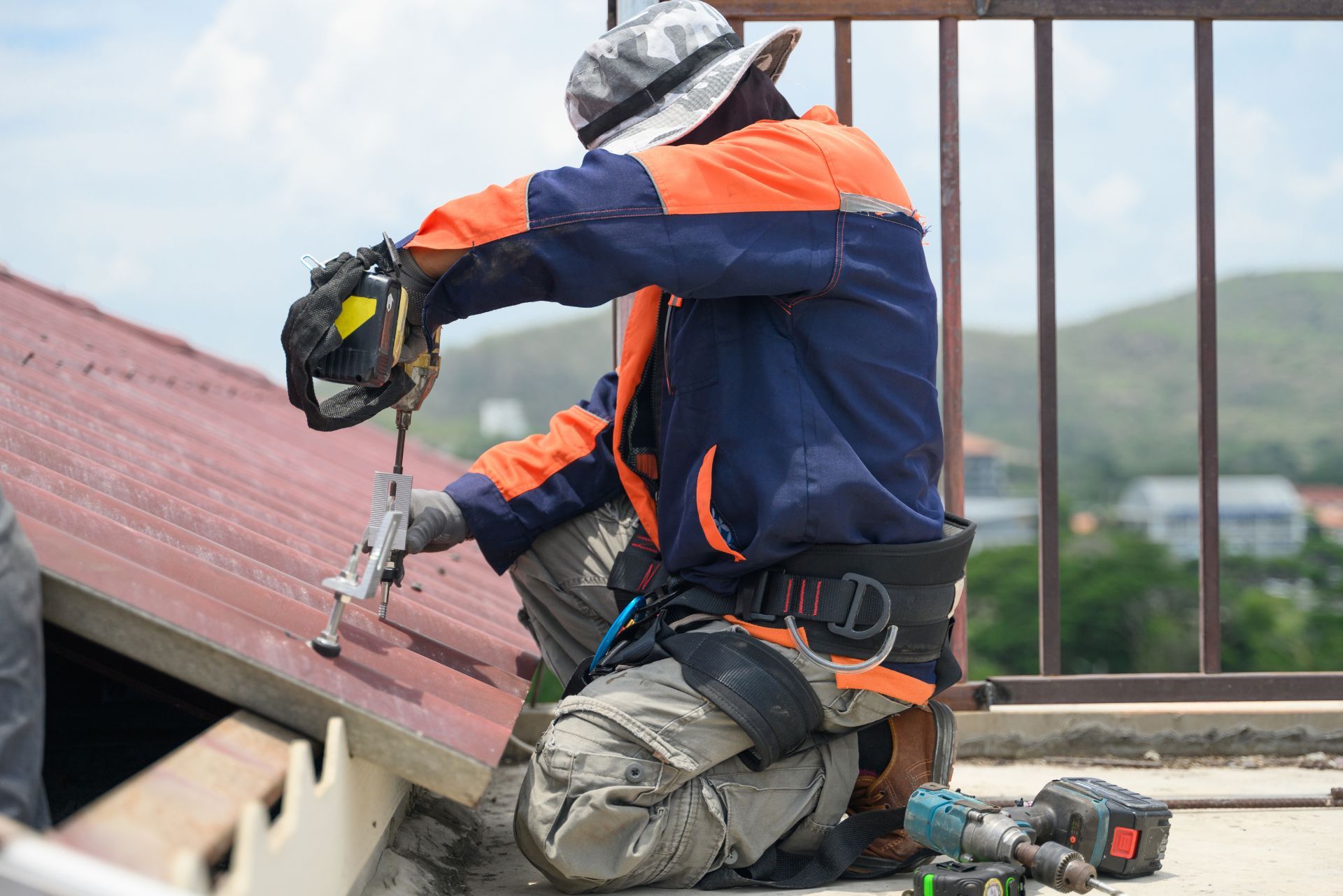In the dynamic world of roofing, especially in a state as diverse and weather-prone as Florida, understanding the nuances of contractor insurance is vital. Roofing contractors face unique risks and challenges, making it essential to have the right insurance coverage. This article delves into the various aspects of Florida roofing contractor insurance, ensuring that contractors are well-informed and prepared.
Understanding Roofing Contractor Insurance
Roofing contractor insurance is designed to protect businesses from various risks associated with the roofing industry. This type of insurance typically includes several key components, each tailored to address the specific needs of roofing contractors.
Types of Insurance Coverage
There are several types of insurance coverage that roofing contractors should consider. Each type serves a distinct purpose and provides protection against different risks.
- General Liability Insurance: This is the most fundamental type of insurance for roofing contractors. It protects against claims of bodily injury or property damage that may occur during the course of work.
- Workers' Compensation Insurance: This coverage is crucial for contractors with employees. It provides benefits to workers who are injured on the job, covering medical expenses and lost wages.
- Commercial Auto Insurance: If a contractor uses vehicles for business purposes, this insurance is necessary. It covers damages resulting from accidents involving company vehicles.
Importance of Insurance for Roofing Contractors
Having the right insurance is not just a legal requirement; it is a crucial part of running a successful roofing business. Without adequate coverage, contractors expose themselves to significant financial risks.
In Florida, where severe weather events can occur, the importance of insurance is magnified. A contractor without proper coverage may face devastating financial consequences in the event of a lawsuit or an accident. Insurance provides peace of mind, allowing contractors to focus on their work without the constant worry of potential liabilities.
Moreover, roofing contractors often work with expensive materials and equipment, making them vulnerable to theft or damage. Insurance can cover these losses, ensuring that a contractor's investment is protected. Additionally, having comprehensive insurance can enhance a contractor's reputation, as clients often look for proof of coverage before hiring a contractor for their roofing needs. This not only builds trust but can also be a deciding factor for potential clients when comparing bids from different contractors.
Furthermore, in a competitive market, being insured can give roofing contractors a significant edge. Many clients prefer to work with insured contractors, as it demonstrates professionalism and a commitment to safety. This can lead to increased business opportunities and the ability to take on larger projects that require proof of insurance. As the roofing industry continues to evolve, staying informed about the latest insurance options and requirements is essential for contractors aiming to thrive in this dynamic field.

Legal Requirements for Roofing Contractors in Florida
Florida has specific legal requirements regarding insurance for roofing contractors. Understanding these regulations is essential for compliance and for protecting both the contractor and their clients.
State Licensing Requirements
Before obtaining insurance, roofing contractors must be licensed in Florida. The state requires contractors to have a valid license, which ensures that they meet the necessary standards for safety and quality.
Licensing also involves demonstrating knowledge of local building codes and regulations, which is critical for ensuring that roofing work is performed safely and legally. This process typically includes passing a series of exams that cover various aspects of roofing, such as materials, installation techniques, and safety protocols. Additionally, contractors must provide proof of experience in the field, often requiring a specified number of years working under a licensed contractor. This thorough vetting process helps maintain high industry standards and protects consumers from unqualified individuals.
Insurance Minimums
Florida does not have a universal minimum requirement for roofing contractor insurance, but many local jurisdictions may impose specific requirements. Generally, it is advisable for contractors to carry at least $1 million in general liability insurance.
Additionally, workers' compensation insurance is mandatory for contractors with four or more employees. This requirement protects workers and ensures that contractors comply with state laws. It not only covers medical expenses and lost wages for employees injured on the job but also shields contractors from potential lawsuits arising from workplace injuries. Given the high-risk nature of roofing work, having comprehensive insurance coverage is crucial. Contractors are encouraged to consult with insurance professionals to tailor their policies to fit their specific needs, which may include additional coverage for equipment, tools, and even professional liability to safeguard against claims of negligence or errors in workmanship.
Choosing the Right Insurance Provider
Selecting the right insurance provider is a critical decision for roofing contractors. The choice of provider can significantly impact the quality of coverage and the overall experience of managing insurance claims.
Factors to Consider
When evaluating insurance providers, contractors should consider several factors:
- Experience in the Roofing Industry: It's beneficial to choose an insurance provider that specializes in construction or roofing. They will better understand the unique risks associated with the industry.
- Coverage Options: Look for providers that offer comprehensive coverage options tailored to roofing contractors. This may include specialized policies for equipment, tools, and materials.
- Customer Service: Excellent customer service is crucial. Contractors should choose a provider known for responsive support, especially when filing claims.
Getting Quotes and Comparing Policies
Once potential providers have been identified, contractors should obtain quotes from multiple companies. This process allows for comparison of coverage options, premiums, and deductibles.
When comparing policies, it’s essential to read the fine print. Understanding exclusions, limits, and specific terms can help contractors avoid surprises when they need to file a claim.
Additionally, contractors should consider the financial stability of the insurance provider. A company with a strong financial rating is more likely to fulfill its obligations when claims arise. Resources like A.M. Best or Standard & Poor’s can provide insights into the financial health of an insurance company, giving contractors peace of mind that their provider will be able to pay out claims when necessary.
Networking with other roofing contractors can also provide valuable insights into the reputation of various insurance providers. Peer recommendations can highlight the experiences of others in the industry, helping contractors make a more informed choice. Engaging in local trade associations or forums can be an excellent way to gather this information and ensure that the selected provider aligns with the specific needs of their roofing business.
Cost of Roofing Contractor Insurance in Florida
The cost of insurance for roofing contractors can vary widely based on several factors. Understanding these factors can help contractors budget effectively and make informed decisions.
Factors Influencing Insurance Costs
Several elements can influence the cost of roofing contractor insurance:
- Business Size: Larger businesses with more employees typically face higher insurance costs due to the increased risk and potential for claims.
- Claims History: A contractor's claims history can significantly impact premiums. A history of frequent claims may lead to higher rates.
- Location: The geographical area where the contractor operates can also affect costs. Areas prone to severe weather may lead to higher premiums.
Average Premiums
On average, roofing contractors in Florida can expect to pay between $800 and $2,500 annually for general liability insurance. Workers' compensation premiums can vary significantly based on payroll and the number of employees.
It's important for contractors to shop around and get multiple quotes to find the best coverage at the most competitive rates.
Additionally, the type of roofing work performed can also play a crucial role in determining insurance costs. For instance, contractors specializing in high-risk projects, such as commercial roofing or those involving steep slopes, may face higher premiums due to the increased likelihood of accidents. Furthermore, the materials used in roofing can influence insurance rates; using more hazardous materials may require additional coverage, thereby raising costs.
Contractors should also consider the benefits of risk management and safety training programs. Implementing comprehensive safety measures not only helps reduce the risk of accidents but can also lead to lower insurance premiums. Insurers often reward businesses that demonstrate a commitment to safety with discounts or more favorable terms, making it beneficial for contractors to invest in such initiatives.

Common Insurance Claims for Roofing Contractors
Roofing contractors face various risks that may lead to insurance claims. Understanding common claims can help contractors take preventive measures and better prepare for potential issues. The nature of roofing work often exposes contractors to unique challenges, including unpredictable weather conditions and the physical demands of the job, which can further complicate their risk management strategies.
Types of Common Claims
Some of the most common insurance claims in the roofing industry include:
- Bodily Injury Claims: Accidents can happen on the job site, leading to injuries. These claims may involve workers or third parties. For instance, a slip and fall incident can result in significant medical expenses and lost wages, which may burden both the injured party and the contractor.
- Property Damage Claims: Damage to a client's property during roofing work is a common issue. This can include damage to landscaping, structures, or other property. In some cases, even minor oversights, like dropping tools or materials, can lead to costly repairs that impact the contractor's reputation and financial stability.
- Equipment Theft: Roofing contractors often have expensive tools and equipment. Theft of these items can lead to significant financial loss. Additionally, the downtime required to replace stolen equipment can delay projects and affect client satisfaction.
Preventing Insurance Claims
While insurance is essential, preventing claims is equally important. Roofing contractors can take several proactive steps to minimize risks:
- Safety Training: Regular safety training for employees can reduce the likelihood of accidents and injuries on the job site. This training should not only cover the use of personal protective equipment (PPE) but also emphasize the importance of situational awareness and communication among team members.
- Proper Equipment Maintenance: Ensuring that all tools and equipment are well-maintained can prevent accidents and equipment failures. Implementing a routine maintenance schedule can help identify wear and tear before it becomes a safety hazard, thereby extending the lifespan of the equipment.
- Thorough Inspections: Conducting thorough inspections before and after projects can help identify potential issues that could lead to claims. These inspections should include checking for loose shingles, assessing the integrity of the roof structure, and ensuring that all safety protocols are being followed.
Additionally, contractors can benefit from fostering a culture of safety within their teams. Encouraging open communication about safety concerns and creating an environment where workers feel comfortable reporting hazards can significantly reduce the risk of accidents. Furthermore, investing in advanced safety technology, such as drones for roof inspections, can enhance the ability to identify potential issues without putting workers at risk. By taking these proactive measures, roofing contractors can not only protect their business interests but also contribute to a safer work environment for everyone involved.
Special Considerations for Florida Roofing Contractors
Florida's unique climate and regulatory environment present specific challenges for roofing contractors. Understanding these considerations is crucial for effective risk management.
Weather-Related Risks
Florida is known for its hurricanes and severe storms, which can pose significant risks for roofing contractors. Insurance coverage should include provisions for weather-related damages.
Contractors should also consider the implications of working during hurricane season. Having a clear plan for securing job sites and protecting materials can mitigate risks during these times. Additionally, investing in advanced weather monitoring technology can provide contractors with real-time updates on impending storms, allowing for timely adjustments to project schedules and site safety measures. This proactive approach not only protects the integrity of the work but also enhances the safety of the crew and the surrounding community.
Regulatory Compliance
Florida's building codes and regulations are stringent, especially regarding roofing materials and installation practices. Contractors must stay informed about changes in regulations to ensure compliance.
Failing to comply with local codes can lead to fines, increased insurance premiums, and potential liability in the event of an accident or damage. Moreover, understanding the nuances of Florida's licensing requirements is essential for contractors looking to operate legally and effectively. Regular training sessions and workshops can help contractors keep abreast of the latest industry standards and best practices, fostering a culture of safety and compliance within their teams. This commitment to ongoing education not only enhances the quality of work but also builds trust with clients, who are increasingly seeking contractors with a demonstrated commitment to regulatory adherence and quality assurance.
Final Thoughts on Roofing Contractor Insurance
In the competitive roofing industry, having the right insurance coverage is not just a legal requirement; it is a vital component of a successful business strategy. Florida roofing contractors must navigate a complex landscape of risks, regulations, and market dynamics.
By understanding the various types of insurance available, the legal requirements specific to Florida, and the factors influencing insurance costs, contractors can make informed decisions that protect their business and ensure their long-term success.
Investing time in selecting the right insurance provider and understanding coverage options can save contractors from significant financial losses in the event of accidents or claims. Ultimately, a well-informed contractor is a successful contractor.
As the roofing industry continues to evolve, staying updated on insurance trends, regulatory changes, and best practices will be essential for contractors in Florida. By prioritizing insurance as a key aspect of their business strategy, roofing contractors can focus on what they do best: providing quality roofing services to their clients.
Moreover, contractors should also consider the importance of risk management practices alongside their insurance policies. Implementing safety training programs for employees, conducting regular inspections of equipment, and adhering to strict safety protocols can significantly reduce the likelihood of accidents on the job site. These proactive measures not only enhance the safety of workers but can also lead to lower insurance premiums over time, as insurers often reward businesses that demonstrate a commitment to risk mitigation.
Additionally, networking with other professionals in the industry can provide valuable insights into the best insurance practices and coverage options. Joining local roofing associations or attending industry conferences can facilitate connections with peers who have navigated similar challenges. Sharing experiences and strategies can lead to better decision-making when it comes to insurance and overall business operations, ultimately fostering a more resilient and competitive roofing business in Florida's dynamic market.

Contact Us


